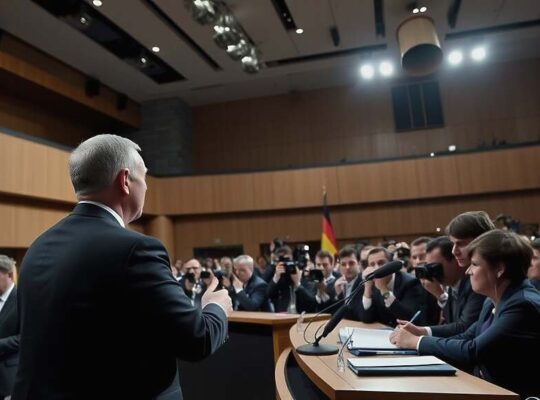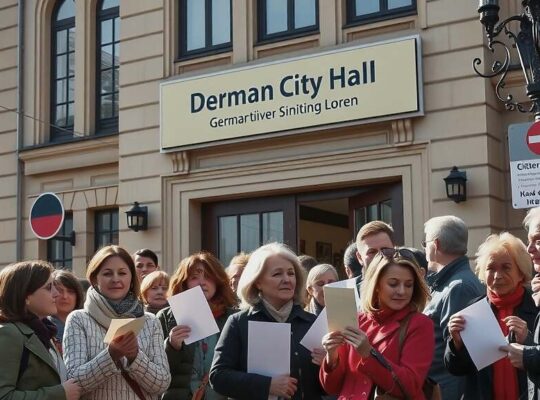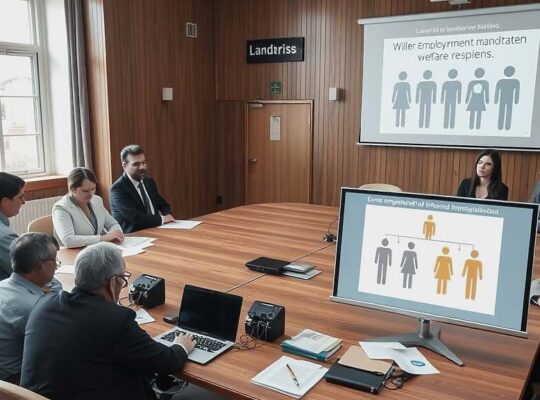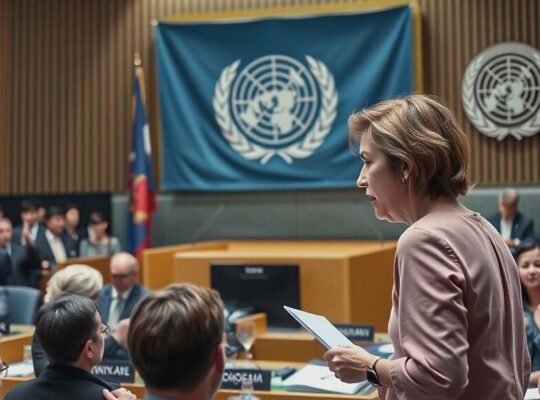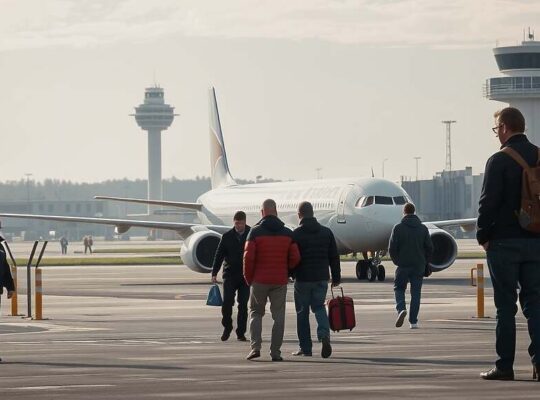German county associations have appealed to the federal government for municipal relief, citing a growing financial strain on local authorities. In a letter to Chancellor Friedrich Merz and Finance Minister Lars Klingbeil, reported in the “Frankfurter Allgemeine Zeitung”, the associations highlight a considerable lack of funding for investment despite federal contributions from special funds.
The letter, authored by the President of the County Association, Achim Brötel and its Managing Director, Hans-Günter Henneke, asserts that cities, counties and municipalities are facing unprecedented financial difficulties. A projected municipal deficit of 35 billion euros is anticipated this year, with the authors stating that state governments are unable to provide sufficient assistance. They therefore urge the federal government to provide immediate financial aid.
With local elections approaching in North Rhine-Westphalia, Brötel and Henneke emphasize that budgets are currently being drafted without any anticipated cost relief for municipalities. They express concern that this could exacerbate local discontent and potentially benefit anti-democratic elements. A key driver of the deficit is attributed to rising costs within the social welfare system.
The letter recalls that between 2015 and 2021, the federal government fully covered accommodation and heating costs related to refugees. They propose a continuation of this support as an immediate measure, noting that municipalities allocated 3.41 billion euros to this purpose in 2024.
County associations have also advocated for a shift of Ukrainian refugees from citizen benefits to asylum seeker benefits, a position diverging from some other municipal associations. While the governing coalition agreement outlines federal commitment to cover approximately 1.375 billion euros in costs associated with this change, the county associations specifically call for this to apply to all Ukrainian refugees, not just newly arrived ones, as originally stipulated.
Brötel and Henneke further argue that the imbalance in municipal finances stems from the fact that municipalities, responsible for over a quarter of public spending, receive only roughly one seventh of public tax revenue. They contend that a significant increase in revenue is essential for municipalities to fulfil their duties, even under normal circumstances.



